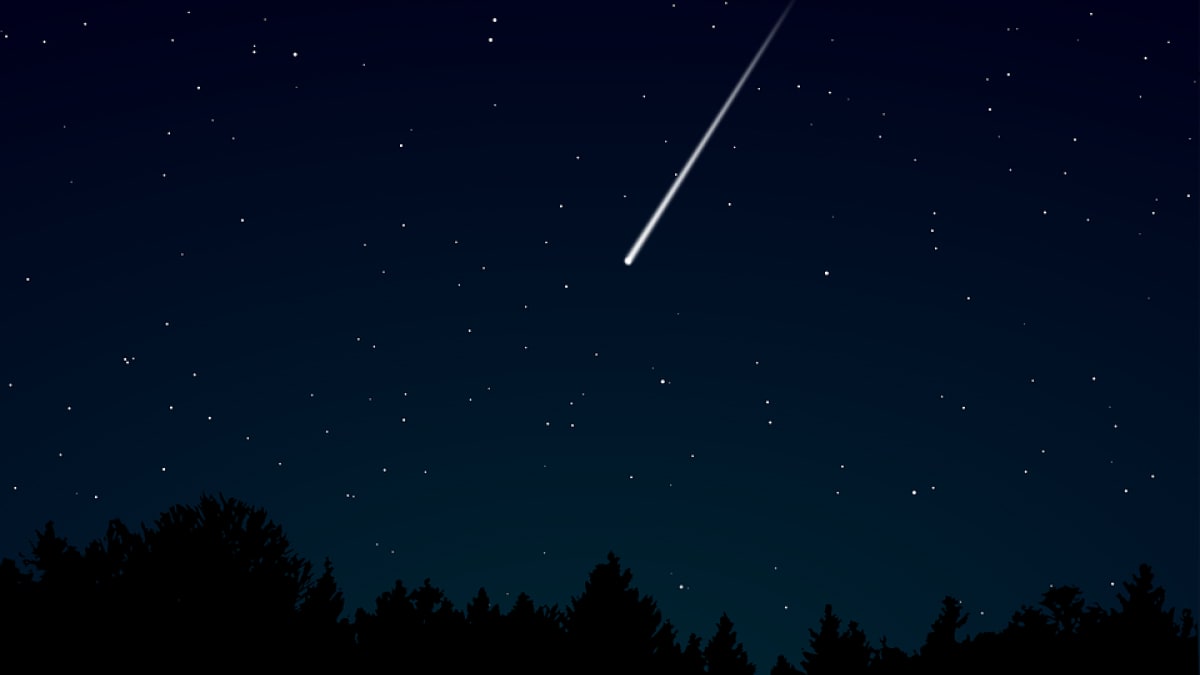The highly anticipated Geminid meteor shower is set to reach its peak on the night of December 13 into the early hours of December 14, offering sky watchers an opportunity to witness one of the most significant celestial events of the year. However, as per reports, the viewing experience this year will be significantly impacted by bright moonlight due to a full moon on December 15. This bright lunar illumination is expected to obscure much of the meteor activity, especially the fainter streaks.
Challenges in Viewing Due to Moonlight
According to a report by Space.com, the Geminids, typically regarded as the most impressive annual meteor display, are characterised by their moderate speed and vibrant colours, often appearing in hues of yellow. While up to 120 meteors per hour can be seen under optimal dark sky conditions, the moon’s brightness this year will reduce visibility significantly. A few of the brightest meteors, including occasional fireballs, may still be visible. These brighter meteors could pierce through the moonlit sky and provide a glimpse of the event’s grandeur.
Best Times for Viewing
Astronomical reports suggest that those keen on observing the Geminids should target the predawn hours leading up to December 13. Limited “dark sky windows” have been identified for viewing before the moon sets and twilight begins. For instance, cities like Boston and Chicago will experience over two hours of dark skies on December 11, decreasing sharply to just a few minutes by December 13. In some locations, such as Seattle and Helena, no dark sky opportunities are expected on the peak night due to the moon’s presence.
Looking Ahead to Next Year
As per meteorological predictions, viewing conditions for the Geminid meteor shower in 2025 will be vastly improved. With a waning crescent moon phase expected during the peak period, minimal lunar interference will allow for optimal observation of this celestial spectacle across various regions.






















